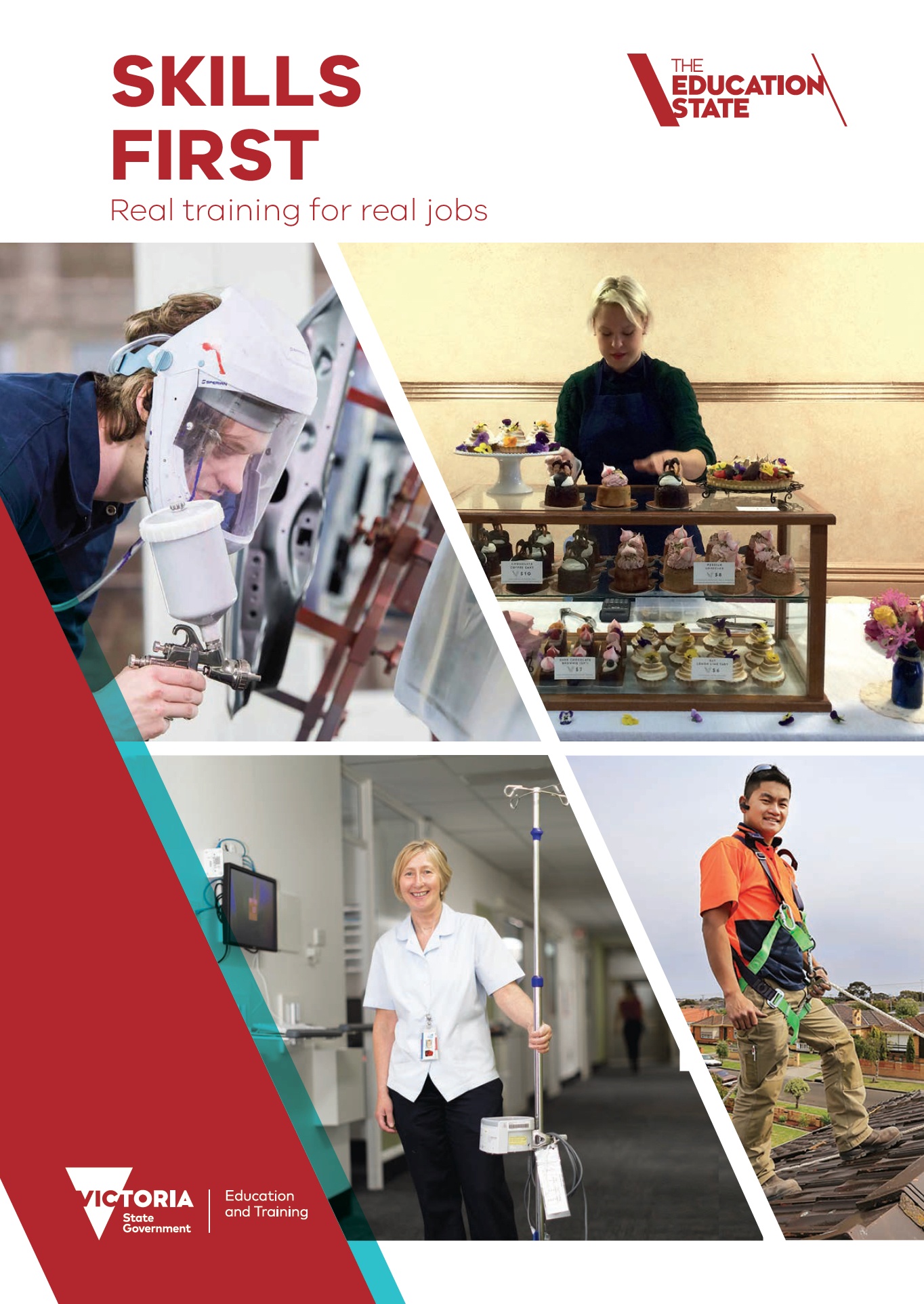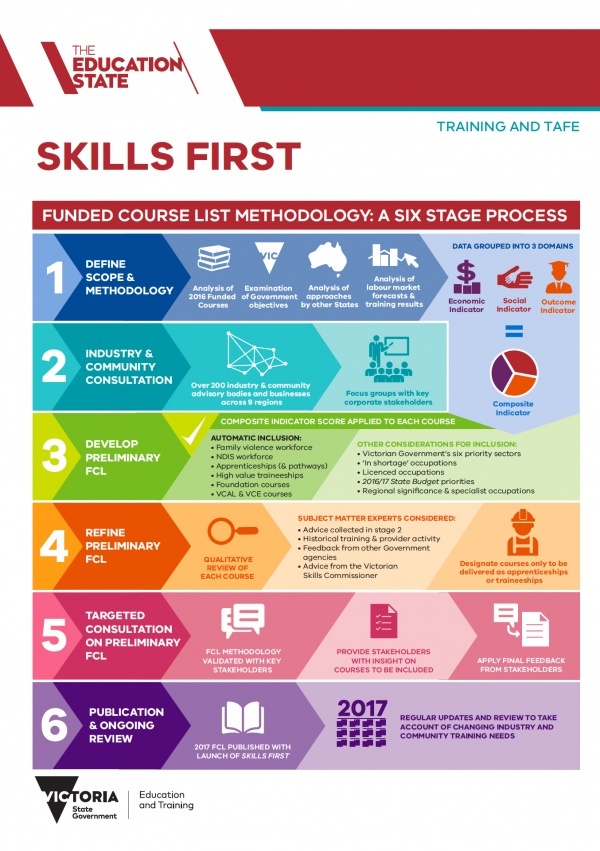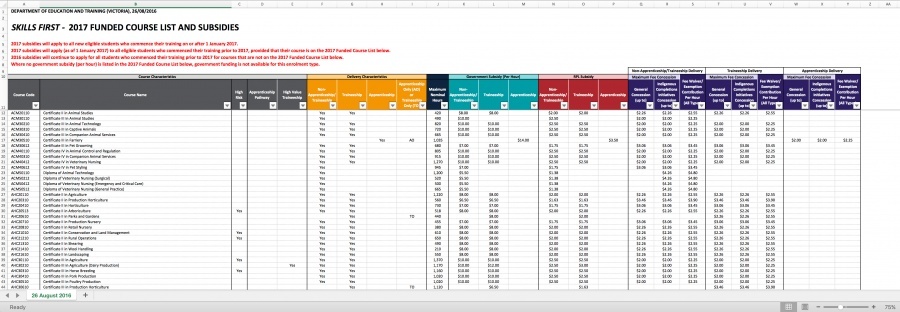by Matthew Dale | Jun 22, 2017 | Audit Express, Best Practice, Community Colleges Australia, Compliance Consulting, Funding Contract, Registered Training Organisation, TAFE, Uncategorized, VET Policy, Victorian Funding Contract, Victorian Training Guarantee
[vc_row][vc_column][vc_tta_accordion style=”salbii” c_icon=”chevron” c_position=”right” collapsible_all=”true”][vc_tta_section title=”Child Safe Standards – Changes Ahead! Is your organisation ready?” tab_id=”1498091586612-4bd016ff-53c0″][vc_single_image image=”6129″ title=”Child Safe Standards”][/vc_tta_section][vc_tta_section i_icon_fontawesome=”fa fa-users” add_icon=”true” title=”What are the Child Safe Standards?” tab_id=”1498089365586-a2b69477-3854″][vc_column_text css_animation=”zoomIn”]The Victorian Government has introduced compulsory minimum standards for organisations that provide services for children to help protect children from abuse.
The Child Safe Standards are part of the Victorian Government’s response to the Betrayal of Trust Inquiry (the 2013 Parliamentary Inquiry into the Handling of Child Abuse by Religious and Other Non-Government Organisations).
Organisations that operate in the state of Victoria that provide services or facilities for children must implement Child Safe Standards to protect them from abuse.
Training Organisations that are located in Victoria and deliver senior secondary education and training, or courses to CRICOS students under the age of 18, must have systems in place to:
- reduce the risk of reportable conduct being committed by a worker or volunteer;
- enable any person to notify the head of the organisation (i.e. the CEO, or Executive Officer) of a ‘reportable allegation’; and
- investigate and respond to a ‘reportable allegation’ against a worker or volunteer.
The Scheme requires the head of your organisation to:
- notify the CCYP of ‘reportable allegations’ within 3 business days after becoming aware of them;
- give the CCYP further, detailed information about the allegation within 30 days; and
- after the investigation has concluded, give the CCYP information regarding the investigation outcomes, including the investigation findings.
The Child Safe Standards came into force over two stages:[/vc_column_text][vc_column_text css_animation=”zoomIn”]
Stage 1 – Roll out of Child Safe Standards
[emaillocker id=6291]
- From 1 January 2016 the Standards applied to organisations that receive government funding and provide services for children
- From 1 January 2017 other organisations that provide services or facilities for children but don’t receive government funding are also required to meet the standards.
Victorian organisations are now required to comply with the Child Safe Standards regardless of whether they do, or don’t receive government funding.[/vc_column_text][vc_column_text css_animation=”zoomIn”]
Stage 2 – Roll out of Reportable Conduct and Organisational Duty of Care
The most recent fact sheet issued to Victorian state government funded RTOs and TAFEs advises that: Factsheet Reportable Conduct and Organisational Duty of Care
- From 01 July 2017 the Reportable Conduct Scheme commences in Victoria. It was introduced to enable an independent body, the Commission for Children and Young People (CCYP), to have oversight over an organisation’s systems and processes to prevent and respond to allegations of child abuse.
- This will include TAFEs, training providers and organisations registered with the Adult Community and Further Education Board that provide senior secondary education or courses to international students.
From 01 January 2018, the Scheme applies to:
-Residential facilities of boarding schools.
-Overnight camps for children.
-Other disability service providers that provide services for children, including those registered with the National Disability Insurance Scheme.
From 01 January 2019, the Scheme applies to:
-Approved education and care services (e.g. kindergartens, after hours care services).
-Childrens services (e.g. occasional care providers).
-Statutory bodies that have responsibility for children, such as public museums and galleries.[/vc_column_text][/vc_tta_section][vc_tta_section i_icon_fontawesome=”fa fa-exclamation-triangle” add_icon=”true” title=”What does your organisation need to do?” tab_id=”1498089365633-95fc3169-b7a6″][vc_column_text css_animation=”zoomIn”]
- Revise your organisations Child Safe Policy (you should already have this in place. If not this should be developed and implemented ASAP!)
- Develop and implement systems and processes to identify, respond to, investigate, and if necessary notify the CCYP of reportable allegations made against the workers and/or volunteers of your organisation
- Communicate with the staff and volunteers in your organisation to ensure that they understand their obligations in relation to Child Safety
- Ensure that the staff and volunteers in your organisation understand what types of allegations are reportable
- Ensure that the staff and volunteers in your organisation understand that any allegations of a reportable nature should be raised with the head of your organisation, for them to report to the CCYP; and
- Finally ensure that your organisation has developed and implemented processes to enable the head of your organisation to report allegations to the CCYP.
[/vc_column_text][/vc_tta_section][vc_tta_section i_icon_fontawesome=”fa fa-check” add_icon=”true” title=”Want more information or help implementing Child Safe Processes into your organisation?” tab_id=”1498090510861-6e6ce7dd-ec93″][vc_column_text css_animation=”zoomIn”]More information can be found at the CCYP’s website https://ccyp.vic.gov.au/reportable-conduct-scheme/
You might also find this overview of the Victorian Child Safe Standards quite useful – An-overview-of-the-Victorian-child-safe-standards_20170324
[/emaillocker][/vc_column_text][vc_column_text css_animation=”zoomIn”]If you would like help with the development and implementation of Child Safe Policies, Procedures and Business Processes for your organisation please get in touch with the team at Audit Express today!
Phone 1300735541[/vc_column_text][/vc_tta_section][/vc_tta_accordion][/vc_column][/vc_row]

by Matthew Dale | Jun 8, 2017 | ASQA, Audit Express, Best Practice, Community Colleges Australia, Funding Contract, Gayle Tierney MP, Karen Andrews, Karen Andrews MP, Melbourne, Minister, NCVER, Registered Training Organisation, Standards for Registered Training Organisations (RTOs) 2015, Student Satisfaction, VET Conference, VET Fee Help, VET Policy, VET Reform, Victorian Training Guarantee, VRQA

CCA 2017 Conference Community Education: Investing in our Future
Audit Express are proud to be sponsoring the 2017 Community Colleges Australia (CCA) Annual Conference, which is to be held in Melbourne on 25-27 July.
This years conference theme is ‘Community Education: Investing in our Future’ which recognises the importance that education plays in people’s lives. The CCA Annual Conference is the premier event for Australian adult and community education providers, and is always hosted at an impressive venue with a great line up of speakers. The 2017 conference will be held at the award-winning conference venue ‘Citadines on Bourke‘ and the Conference Opening function and Annual Awards Dinner with both be held at the ‘Hotel Windsor‘, one finest 5 star venues in Melbourne, “the world’s most liveable city”.
The Hon Karen Andrews MP, Assistant Minister for Vocational Education and Skills will open this years conference, which has an impressive line-up of keynote speakers and presenters including: (just to name a few)
- The Hon Gayle Tierney MP, Minister for Training and Skills, Minister for Corrections
- Susan Pascoe AM, Commissioner, Australian Charities and Not-for-profits Commission
- The Hon Michael Lavarch AO, Commissioner – Risk, Intelligence and Regulatory Support, Australian Skills Quality Authority (ASQA)
- Professor Rodney Maddock, Monash Business School, and President, Economic Society of Australia, Victorian Branch
- Peter Noonan, Professor of Tertiary Education Policy, Mitchell Institute, Victoria University, Melbourne
- Lynn Glover, CEO (Director) Victorian Registration and Qualification Authority
- Kira Clarke, Lecturer in Education Policy, Centre for Vocational & Education Policy, Graduate School of Education, University of Melbourne
- Dr Laurie Chesley, Provost & Executive Vice President for Academic and Student Affairs, Grand Rapids Community College, Michigan USA
- Dr Roberta Teahen, Associate Provost & Director of the Doctorate in Community College Leadership, Ferris State University, Michigan USA
- Toni Cavallaro, Manager, National Collections Branch, National Centre for Vocational Education Research (NCVER)
- Dr Robbie Lloyd, Community Relationships Manager, Port Macquarie Community College
- Wendy Perry, Managing Director, Workforce BluePrint
- Kevin Ekendahl, our very own CEO of Audit Express, who is presenting on the Importance of Student Satisfaction in the Australian VET Sector
For more information read the 14 reasons why this year’s conference is a “must-attend” event.
Register for this years CCA conference before the 12th of June to receive an early bird discount, click here >>> http://cca.edu.au/what-we-do/2017-annual-conference/#registration

Community Colleges Australia

Audit Express

by Matthew Dale | Apr 20, 2017 | ASQA, Best Practice, Community Colleges Australia, Internal Auditing, Registered Training Organisation, Skills First, Standards for Registered Training Organisations (RTOs) 2015, Victorian Training Guarantee
[vc_row][vc_column][vc_column_text]The team at Audit Express are proud to be teaming up with our friends from Community Colleges Australia (CCA) to sponsor their upcoming Community Education Conversations Professional Development and Networking Event, which is to be held in Melbourne on Friday 12th May 2017.
There is an action packed agenda with a range of topics to be covered including:
– Setting the scene: Julie Neeson, Southern Grampians Adult Education and Community College, Hamilton
– Auditing in the new age – a presentation by Audit Express
– Update on Skills First, by a representative of the VIC Department of Education and Training
– The special case for community education providers in rural and regional Australia: challenges and opportunities, Dr Don Perlgut, CCA CEO
– Community RTOs in Victoria: History, Scope, Scale, Success Factors and Prospects, By Dr Kaye Bowman, former Director of Research at NCVER and VET consultant
– Foundations Skills Training Package: where are the consultations up to? Have your say – a session with Tim Rawlins, PwC Skills for Australia
– What you need to know about the Commonwealth’s new VET Student Loans program, even if you will never use it
– Community education providers and local and regional economic development roundtable discussion – come prepared to share your experiences
– A new national community education infrastructure program – what’s happened since the last one in 2009?
– Entrepreneurship and social enterprise
For more information about the event you can click here to download the Community Education Conversations flyer.
Cost:
This event is free for the members of Community Colleges Australia (CCA).
The cost for non-members to attend is $100 (plus GST).
If you are wanting to attend this event please keep in mind that spaces are limited!
You can reserve you space by emailing: admin@cca.edu.au


[/vc_column_text][/vc_column][/vc_row]
by Matthew Dale | Feb 28, 2017 | Audit Express, Best Practice, Compliance Consulting, Funding Contract, Internal Auditing, Registered Training Organisation, Skills First, Uncategorized, User Choice, Victorian Funding Contract, Victorian Training Guarantee
[vc_row][vc_column][just_icon icon=”Defaults-check” icon_size=”72″ icon_color=”#8dc63f” icon_style=”circle”][vc_column_text]
The Victorian Department of Education and Training have released the
suite of 2017 Skills First internal audit tools.
[/vc_column_text][/vc_column][vc_column][vc_column_text]The Victorian Department of Education and Training (DET) have released their suite of internal audit checklists to assist contracted Training Providers to determine that they have the quality systems, processes and resources in place to meet the requirements of the VET Funding Contract in line with the objectives of the Skills First Program.
There are 5 versions of the Internal Audit Checklist which align with the 5 different 2017 VET Funding Contracts. The Department have designed the Internal Audit Checklist with the aim of providing your organisation with a management tool to assist you in complying with the contractual requirements.
All Training Providers with a Victorian 2017 VET Funding Contract must complete an internal audit six months from the commencement date of the Contract. However contracted training providers are strongly encouraged to complete their internal audit as early as possible to ensure they are aware of the contractual requirements and compliant throughout the year.
You can access the 2017 internal audit checklist relevant to your organisation by logging into the departments SVTS portal.
While it is a requirement for all training providers with a Victorian funding contract to complete the internal audit checklist annually, it is considered best practice in the VET Sector to complete an independent internal audit of your RTOs Registration Requirements and all Funding Contract Obligations at least annually. Audit Express recommends that RTOs engage a specialist VET internal auditor that is independent from the day to day operation of your business to complete your RTOs internal audits, and to provide you with independent advice on how to improve your operational, registration and contract compliance.
Need help completing your Skills First Internal Audit Checklist? Contact the experts at Audit Express today.
[/vc_column_text][/vc_column][/vc_row]

by Matthew Dale | Aug 29, 2016 | Funding Contract, Registered Training Organisation, Skills First, TAFE, Victorian Funding Contract, Victorian Training Guarantee
[vc_row][vc_column][vc_column_text]

SKILLS FIRST | Real training for real jobs | Victoria’s new training system
Skills First | a new training system and funding model for Victoria.
The Victorian Minister has announced Skills First – a new training system and targeted funding model for Victoria in 2017.
What do we know so far?
The new system seems to be very focussed on [emaillocker id=6291] TAFE providers and boosting training and employment in regional Victoria. The new system prioritises courses that support Victoria’s growth sectors and are most likely to get people into high-skilled, well-paid work.
Under the Skills First system, the Victorian Government will continue to invest $1.2 billion annually in the training and workforce development of Victorians.
The system will be focussed on supporting quality training providers. It is expected that many training providers with a poor track record of funding contract compliance and student satisfaction will not receive a funding contract in 2017.

A six stage process was taken to define the funded courses list.
Application Process
- The Department have announced that the call for expression of interest (EOI) for a 2017 VET Funding Contract will open on 1 September 2016.
- The Department will run a series of information sessions across Melbourne and regional Victoria from 1-8 September 2016. The information sessions are already open for registration via SVTS.
- The call for expression of interest documentation and Draft 2017 VET Funding Contracts will be published on SVTS and the Department of Education and Training website on Tuesday 30 August 2016.
The information sessions are expected to provide a brief overview of the Skills First reforms to the VET system, explain the 2017 VET Funding Contract and outline the provider selection process.
The Department have advised training providers that CEOs, managing directors and operations managers are encouraged to attend these sessions. The Department have set a limit that a maximum of 3 representatives can attend the information session per training provider.
2017 Funded Course List
The Department have already released the 2017 Funded Course List.
There are 500 less courses on the 2017 list than in 2016, however it is noted that a number of the courses removed are superseded qualifications.
The courses are still to be subsidised per nominal hour, and the Department have defined four Delivery Characteristics that will be used to determine whether funding is available for a particular delivery mode(s), and the amount of funding that will be available per nominal hour for each delivery mode(s).
The four Delivery Characteristics are:
- Non Apprenticeship/Traineeship
- Traineeship
- Apprenticeship
- Apprenticeship Only (AO); or Traineeship Only (TO)
A number of courses have been determined as High Risk. It is expected that training providers delivering courses that the department have determined as high risk will be more scrutinised.
A number of courses that link to the Victorian Governments objectives and growth sectors have been determined as High Value Traineeships. It seems that the delivery of high value traineeships will be funded at a higher rate per nominal hour as an incentive to attract more training to be delivered in these target courses.

The updated course list has 500 less funded courses than the 2016 funded courses list. That is a 30% cut to the total number of funded courses.
Is this good or bad for your RTO or TAFE?
We will not know what the 2017 contract means for Victorian training providers until we review the 2017 draft contract, eligibility criteria, fee guidelines and detailed application process when they are released via SVTS on 30/08/2016. The devil is always in the detail.
We are eagerly waiting to see the draft 2017 contract and eligibility criteria that will tell us which training providers are eligible for a 2017 contract.
Want to apply for a Victorian Funding Contract for 2017?
If you are wanting to apply for a Victorian Skills First funding contract for your RTO you will first need to register for an SVTS profile. You may also like to refer to the guide to accessing SVTS.
If you have any questions or would like assistance preparing your application for a 2017 Funding Contract contact Audit Express on 1300 73 55 41. [/emaillocker][/vc_column_text][/vc_column][/vc_row]
by Matthew Dale | Aug 23, 2016 | ASQA, Audit Express, Funding Contract, Registered Training Organisation, Uncategorized, Victorian Training Guarantee, VRQA
[vc_row][vc_column][vc_column_text]ASQA have announced their strengthened communication protocols with the Victorian Department, Higher Education and Skills Group (HESG) that were signed off earlier this year by the Victorian State Minister for Training and Skills and the Commonwealth Minister for Vocational Education and Skills. The new protocols will see ASQA and the Victorian Department work closely together to target poor quality training providers. [emaillocker id=6291]
Registered Training Organisations (RTOs) that have funding contracts across multiple states should already be aware that it is not only the Victorian Department of Education and Training (DET) that maintains a close relationship with ASQA. The Departments of Education and Training from all States and Territories hold a memorandum of understanding to maintain close communication with each other, and also with the regulator(s) – including ASQA, VRQA and TAC.
Essentially the new protocols mean that ASQA and the Victorian Department (HESG) will continue to maintain closer contact and work together to identify and respond to poor quality training providers, whilst also strengthening information sharing between the two agencies. ASQA and the Victorian DET are also expected to establish joint working groups and a taskforce. The team at Audit Express will be watching this closely and suspect that other states may follow the lead taken by the Victorian government. For more detail click here to see the full ASQA factsheet.
If your RTO has recently undergone a VTG Quality Review, VTG Business Process Audit, or VTG Transactional Audit; it is almost certain that both your RTO regulator and any other state departments that you hold a funding contract with will also have been informed, and that they may also be looking into your RTOs compliance.
Receiving a negative outcome at audit for either RTO registration compliance, or for RTO funding contract compliance is a serious issue and should be taken seriously.
If you require assistance responding to an audit report, or need help with a post audit rectification project contact the experts at Audit Express today. [/emaillocker][/vc_column_text][/vc_column][/vc_row]










